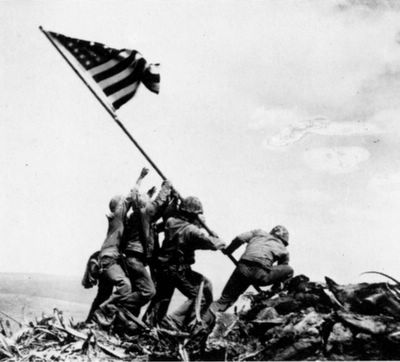We returned to the funeral home early Friday morning
after the wake to complete the burial ceremony for my father-in-law. Most Chinese funerals are held with an open casket, and this one was no exception. A large number of flower wreaths contributed by family members and friends adorned the room from front to back. These wreaths consisted of ribbons with Chinese writings commemorating my father-in-law and the names of the contributors. Flanking both sides of the dark mahogany coffin were the wreaths from the immediate family. To the left was the Sui family's wreath with a picture of her father in the center. Jenny pointed out our family wreath, which was the first one to the right of the casket. I could recognize my Chinese name along with Jenny's on the wreath, but that was all I could read.
Once again, the room was crowded with people, most of whom I recognized from last night. There were a few older persons in the back, that Jenny pointed out to me, who had known her father for many years. One of them was the man who introduced her father to her mother. Another was an adopted uncle whose real parents were killed during the Japanese invasion of China. Rounding out the mourners were numerous family friends, cousins and Jenny's aunts and uncles from San Francisco.
Many of the same rituals of the previous evening were repeated, except that Jenny's youngest sister Anna--the only remaining sibling who is not married or engaged --now stood at the head of the family in place of the son my father-in-law never had. The family concluded the ceremony walking in a procession aroung the room three times with Anna at its head bearing a banner with the name of her father aloft.
When the time came to close the casket, I was inevitably struck by the finality of the moment. This would be the last time we would ever see my father-in-law. Wearing a dark suit and surrounded by Buddhist icons, paper money and his Passport to Nirvana, he looked at peace but devoid of the distinct quality that we call life. One by one, family members each took their turn to say farewell to their husband, father, brother, cousin or uncle. I watched as Jenny tearfully said her farewell to her father, telling him not to worry and asking him to let her know in her dreams if he needed anything. Then we stepped away from the casket and bowed our heads. The funeral director directed us not to look, and then closed the lid on my father-in-law's coffin. This was perhaps the hardest moment.
Arriving up front, the pallbearers aligned the casket 90 degrees towards the door, then lifted it from the platform. A mix of young and old, they struggled to carry the heavy casket out to the waiting limousine.
Departing San Francisco on a rainswept Friday morning, our procession of cars headed south towards Skylawn Cemetery in Half Moon Bay, where my father-in-law had decided would be his final resting place. But forty-five minutes later, as we began our approach on Route 92 towards the cemetery, the clouds suddenly parted and the hills surrounding Half Moon Bay were suddenly bathed in bright sunshine. Jenny took this as a sign, as I did, that her father's soul was on his way to heaven and this was his way of telling us.
Chinese cemeteries are generally located on hillsides near the water as this is thought to be good "feng shui". From this perspective, Jenny's father had chosen well, as his grave site at Skylawn was nearly at the top of the hill, facing the Pacific Ocean. Looking around, I noticed that this cemetery did not allow head stones, only plaques at ground-level. Jenny remarked that this made Skylawn less spooky than others.
When the procession arrived at the grave site, the pallbearers unloaded the casket from the hearse and we engaged in a brief ceremony of chanting and burning of incense and paper offerings led by the Buddhist nun who had accompanied us. Even though it was sunny, the ground was waterlogged and we could not help but sink into the muddy grass surrounding the grave site.
At the conclusion of the ceremony, the funeral director once again directed us to turn away as workers lowered the coffin into the grave. Family members then each took their turns tossing flowers into the grave, in some cases, whispering a brief prayer for the deceased. A waiting backhoe quickly filled the grave with earth, and it was over. Then the Sui family turned away, leaving the hill and soon the cemetery, to its resident souls.













